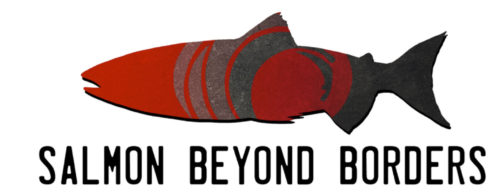
Hope That B.C. Mining Area Bordering Southeast Alaska Salmon Habitat Will Be Cleaned Up

The following press release is courtesy of Salmon Beyond Borders:
After 65 years of waiting, an acid waste-generating abandoned mine in the Taku River watershed may finally be cleaned up.
JUNEAU—The Tulsequah Chief Mine, located near the confluence of the Tulsequah and Taku Rivers in British Columbia, has long been a source of acid mine contamination as well as frustration for those downstream in Alaska. The former gold mine, which ceased operation in 1957, has been a political and legal football for decades. In mid-August, however, a court-mandated deadline ended for a creditor owed money by the Tulsequah Chief’s bankrupt owner, Chieftain Metals.
West Face Capital, the creditor, had until August 11 to reappoint a receiver in hopes someone would buy the mine. Before that, the B.C. government was reluctant to begin the estimated $100 million cleanup.
“We’re thrilled that the last bureaucratic hurdles are being cleared and we urge the B.C. government to move quickly to fix this decades-long mess,” said Breanna Walker, director of Salmon Beyond Borders. “While we are optimistic this source of acid mine waste contamination will soon be brought under control, it does not obscure the fact this took far too long and much larger mines loom on the horizon.”
Elsewhere in the Taku watershed, as well as the transboundary Stikine and Unuk river systems, a modern day gold rush is underway.
“In the Taku watershed alone, B.C. is allowing mining speculators to stake hundreds of square miles of claims literally right up to the U.S. border — and the situation is even worse in the Stikine and Unuk watersheds,” said Walker. “In the Unuk, for example, 88% of the B.C. side of the watershed is staked with B.C. mining claims. We waited 65 years for B.C. to initiate cleanup of Tulsequah Chief, and it was a tiny mine compared to those now operating and planned in the transboundary region.”
In response to the growing upstream threats, communities across Southeast Alaska have passed resolutions calling for a “time out” on mineral claim staking and development and a tailings dam ban in watersheds shared by the two countries.
“It is long past time for all of us connected to these special places to have a seat at the table,” Walker concluded.
For more information on the transboundary Taku, Stikine and Unuk rivers and the Salmon Coast visit www.salmonbeyondborders.org.
For important perspective from the Taku River Tlingit First Nation and Southeast Alaska Tribes, see this news release.



